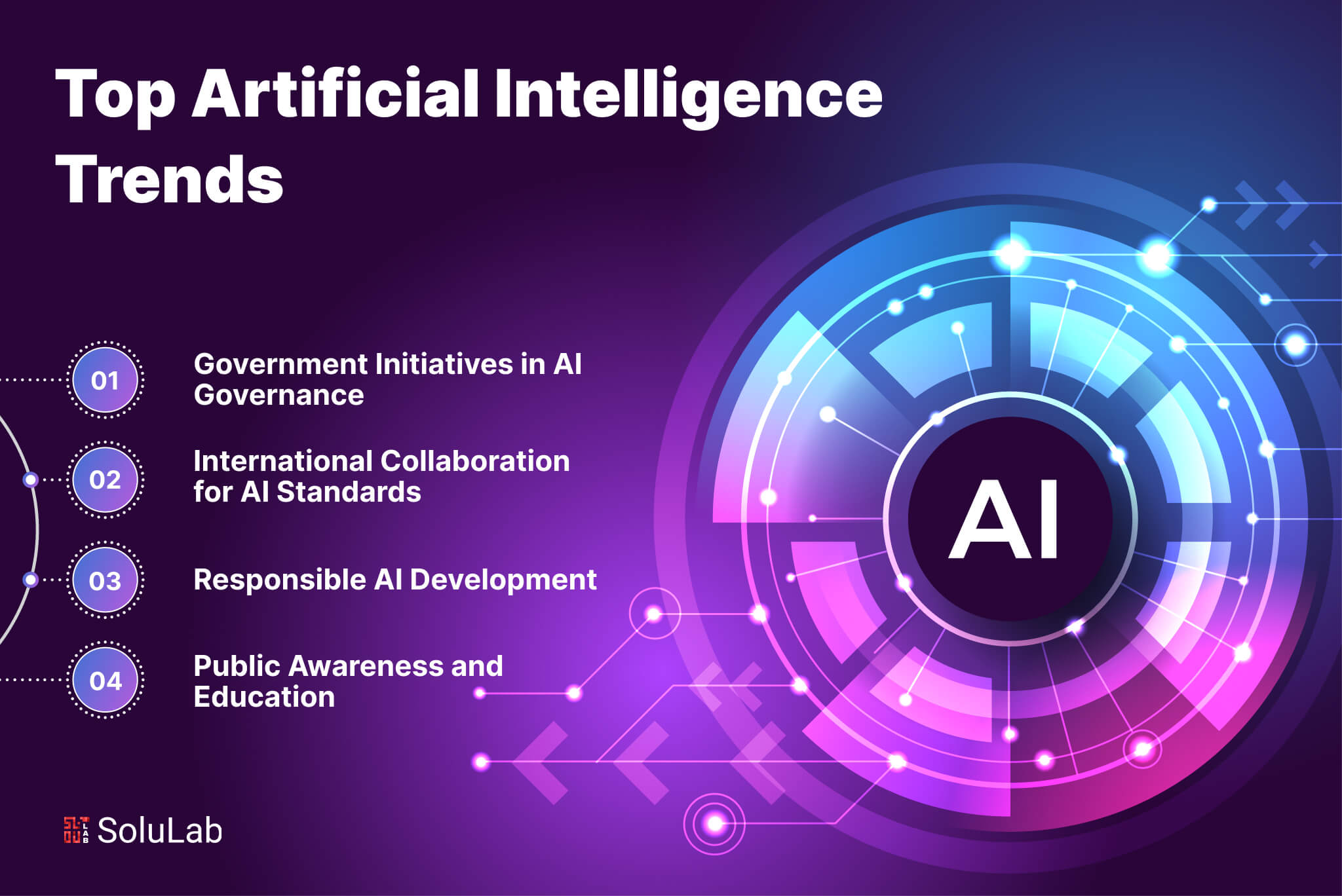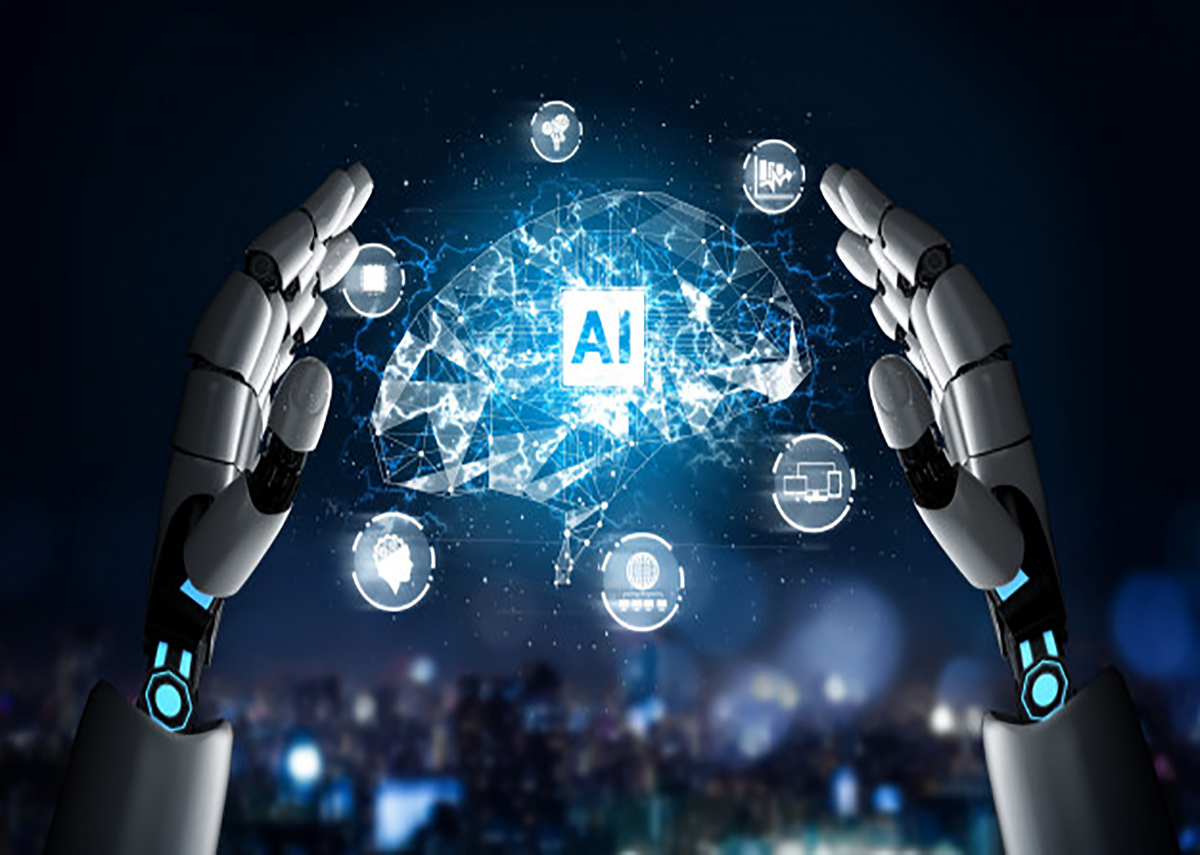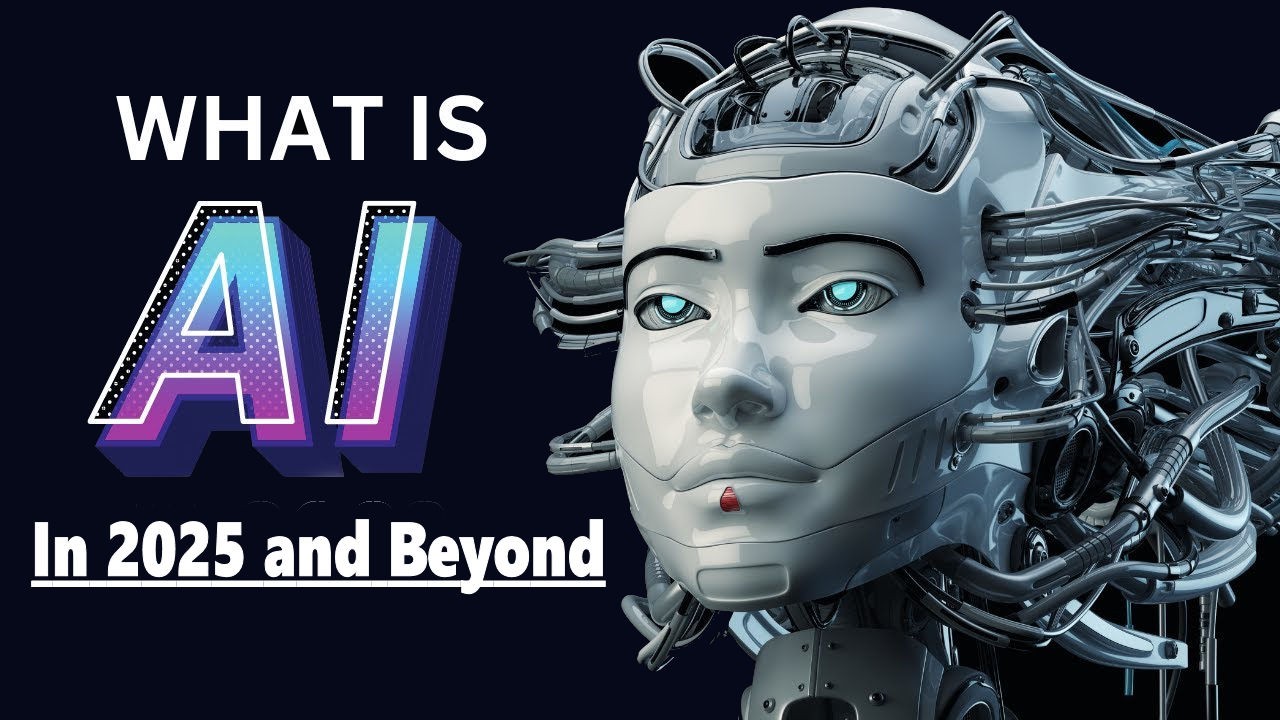AI in 2025: What’s Next? – Future Trends and Breakthroughs to Watch
As we step into 2025, the landscape of artificial intelligence (AI) continues to evolve at an unprecedented pace. The past few years have seen remarkable advancements in AI technologies, fundamentally altering industries, enhancing everyday life, and reshaping the way we interact with the world. In this blog, we will explore the future trends and breakthroughs in AI that we can expect to see in 2025 and beyond, examining their implications for businesses, society, and the global economy.

Introduction to AI in 2025
As we step into 2025, the landscape of artificial intelligence (AI) continues to evolve at an unprecedented pace. The past few years have seen remarkable advancements in AI technologies, fundamentally altering industries, enhancing everyday life, and reshaping the way we interact with the world.
To learn more about the future of AI, watch this TED Talk by Andrew Ng: Andrew Ng: The Future of Artificial Intelligence
1. The Rise of General AI
One of the most anticipated developments in AI is the progression towards Artificial General Intelligence (AGI). Unlike narrow AI, which is designed to perform specific tasks, AGI aims to replicate human cognitive abilities, enabling machines to understand, learn, and apply knowledge across a wide range of tasks.

Implications of AGI
- Enhanced Problem Solving: AGI could revolutionize fields such as healthcare, climate science, and engineering by providing solutions to complex problems that currently require human intervention. Learn more about AGI and its implications.
- Ethical Considerations: The development of AGI raises significant ethical questions regarding control, decision-making, and the potential for unintended consequences. Explore ethical considerations in AI.
Watch this documentary by Kurzgesagt to learn more about the possibilities and challenges of AGI: Kurzgesagt: The Singularity
2. AI and the Workforce
The integration of AI into the workplace is set to deepen, with machines taking over repetitive and mundane tasks, allowing human workers to focus on more creative and strategic endeavors.

Job Transformation
- Reskilling and Upskilling: As AI takes on more roles, there will be a growing demand for reskilling and upskilling programs to prepare the workforce for new job requirements. Read about the future of work and reskilling.
- Collaboration Between Humans and AI: The future workplace will likely see a collaborative environment where humans and AI systems work together, leading to increased productivity and innovation. Learn about human-AI collaboration.
Watch this lecture by Prof. Silvio Savarese to learn more about the impact of AI on the workforce: Prof. Silvio Savarese: Introduction to Artificial Intelligence
3. AI in Healthcare
AI's impact on healthcare is already profound, and by 2025, we can anticipate several breakthroughs that will enhance patient care and streamline operations.

Predictive Analytics
- Personalized Medicine: AI algorithms will analyze vast amounts of patient data to identify patterns and predict health outcomes, enabling personalized treatment plans tailored to individual needs. Discover the role of AI in personalized medicine.
- Early Detection: Machine learning models will improve early detection of diseases, particularly in oncology and chronic illnesses, potentially saving lives through timely interventions. Learn about AI in early disease detection.
Watch this video by DeepMind to learn more about the applications of AI in healthcare: DeepMind: Introduction to Deep Learning
4. AI in Transportation
The transportation sector is on the brink of a revolution, driven by advancements in AI technology.

Autonomous Vehicles
- Widespread Adoption: Autonomous vehicles (AVs) are expected to become more commonplace, with improved safety features and regulatory frameworks supporting their integration into public and private transport systems. Learn about the future of autonomous vehicles.
- Smart Traffic Management: AI will optimize traffic flow in urban areas, reducing congestion and emissions through real-time data analysis and adaptive traffic signals. Discover AI's role in smart traffic management.
Watch this video by Google I/O 2022 to learn more about the future of transportation: Google I/O 2022: AI and Machine Learning
5. AI and Cybersecurity
As cyber threats become more sophisticated, AI will play a crucial role in enhancing cybersecurity measures.

Proactive Threat Detection
- Automated Security Systems: AI algorithms will continuously monitor networks for anomalies, enabling proactive threat detection and response. Learn about AI in cybersecurity.
- AI-Enhanced Incident Response: Machine learning will improve incident response times by analyzing attack patterns and automating remediation processes. Explore AI's impact on incident response.
Watch this video by Microsoft Research to learn more about the role of AI in cybersecurity: Microsoft Research: The Future of AI
6. AI in Education
The education sector is poised for transformation through AI, creating personalized learning experiences and improving educational outcomes.

Personalized Learning
- Adaptive Learning Platforms: AI will power adaptive learning platforms that tailor educational content to individual student needs, allowing for a more personalized and effective learning experience. Discover adaptive learning technologies.
- Virtual Tutors: AI-driven virtual tutors will provide additional support to students, offering real-time feedback and assistance outside the traditional classroom setting. Learn about AI in tutoring.
Watch this video by Andrew Ng to learn more about the role of AI in education: Andrew Ng: AI for Everyone
7. AI in Finance
The financial sector is rapidly adopting AI technologies to enhance decision-making, improve customer service, and mitigate risks.
Enhanced Risk Management
- Predictive Analytics for Investments: AI will analyze market trends and consumer behavior, providing investors with valuable insights for making informed decisions. Read about AI in finance.
- Fraud Detection: Machine learning algorithms will become increasingly effective at detecting fraudulent activities, protecting both financial institutions and consumers. Learn about AI in fraud detection.
Watch this video by World Economic Forum to learn more about the future of AI in finance: World Economic Forum: The Future of Artificial Intelligence
8. AI and Sustainability
As the world grapples with climate change and environmental challenges, AI will play a pivotal role in promoting sustainability.

Energy Management
- Smart Grids: AI will optimize energy consumption and distribution through smart grids, reducing waste and improving efficiency in energy usage. Learn about AI in smart grids.
- Renewable Energy Optimization: AI algorithms will enhance the efficiency of renewable energy sources, such as solar and wind, by predicting energy production and consumption patterns. Discover AI's role in renewable energy.
Watch this video by Harvard University to learn more about the role of AI in sustainability: Harvard University: Artificial Intelligence: A Modern Approach
9. Ethical AI and Governance
As AI technologies advance, ethical considerations and governance will become increasingly important.

Frameworks for Responsible AI
- Ethical Guidelines: Organizations will develop and adopt ethical guidelines for AI development and deployment, ensuring transparency, fairness, and accountability. Learn about ethical AI frameworks.
- Regulatory Compliance: Governments will establish regulatory frameworks to govern AI usage, addressing concerns related to privacy, bias, and security. Read about AI regulations.
Watch this video by MIT Technology Review to learn more about the future of AI and its implications: MIT Technology Review: The Future of AI
Conclusion
As we look towards 2025, the future of AI is filled with promise and potential. The trends and breakthroughs discussed in this blog highlight the transformative power of AI across various sectors, from healthcare and transportation to education and finance. However, with great power comes great responsibility. It is crucial for stakeholders, including governments, businesses, and the public, to engage in meaningful discussions about the ethical implications of AI and to work collaboratively to ensure that these technologies are harnessed for the greater good.



No comments: